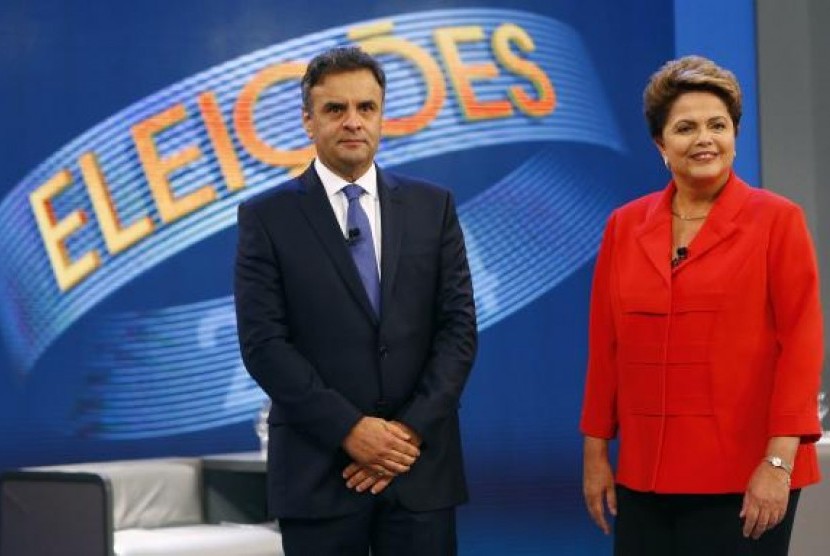REPUBLIKA.CO.ID, RIO DE JANEIRO/SAO PAULO - Brazilians were voting on Sunday in an election that pits a leftist president with strong support among the poor against a centrist senator who is promising pro-business policies to jumpstart a stagnant economy.
Final polls on the eve of the vote gave a slight edge to incumbent Dilma Rousseff (66 years) who is seeking a second four-year term. Her Workers' Party has held power for 12 years and leveraged an economic boom to expand social welfare programs and lift over 40 million people from poverty.
But many voters believe Aecio Neves, a 54-year-old former state governor with strong support among upper-middle class and wealthy Brazilians, offers a much-needed change of the guard for Latin America's biggest economy. A decade of growth peaked at 7.5 percent in 2010 and has flagged since Rousseff took office.
Brazilians have largely shrugged off the acrimonious finger pointing and corruption allegations that characterized the most competitive campaign in decades, dividing instead between those who feel better off than they did before Rousseff's party took office and those who believe the country is stuck in a rut.
"We're tired after 12 years...we need a change, we need better education and basic health care," said Tiago Nunes, a 32-year-old doctor in Sao Paulo who was voting for Neves.
Electronic polls opened without incident from remote farming communities in the vast interior to coastal towns in the historically poor Northeast. More than 140 million people are registered to vote in Brazil and casting a ballot is mandatory for everyone between the ages of 18 and 70.
Rousseff voted early in the southern city of Porto Alegre, where she lived and rose in the state bureaucracy in the 1990s. She has promised to deepen flagship welfare programs and to seek to restore growth with a new economic team.
Neves also promises to keep the popular social benefits while adopting more market-friendly fiscal measures to rein in public spending, take a tougher stance against inflation and give the central bank more autonomy to set monetary policy.
The choice takes Brazil back to a clash between classes in a country still riven by inequality.
The final two opinion polls before Sunday's vote showed Rousseff as a slight favorite, with one putting her in front by 6 percentage points. But one showed Neves pulling ahead in Minas Gerais, the state he governed for two terms and a bellwether every victorious presidential candidate has won since Brazil's full return to democracy in 1989.
Pollsters faced widespread criticism for failing to pinpoint Neves' strong showing in the first round of voting on Oct. 5, when he surged from a distant third place to clinch second.



